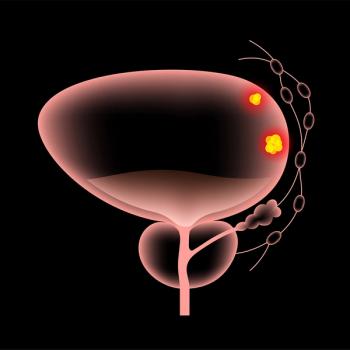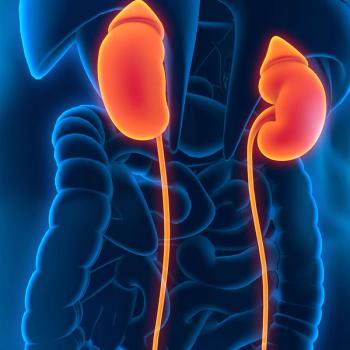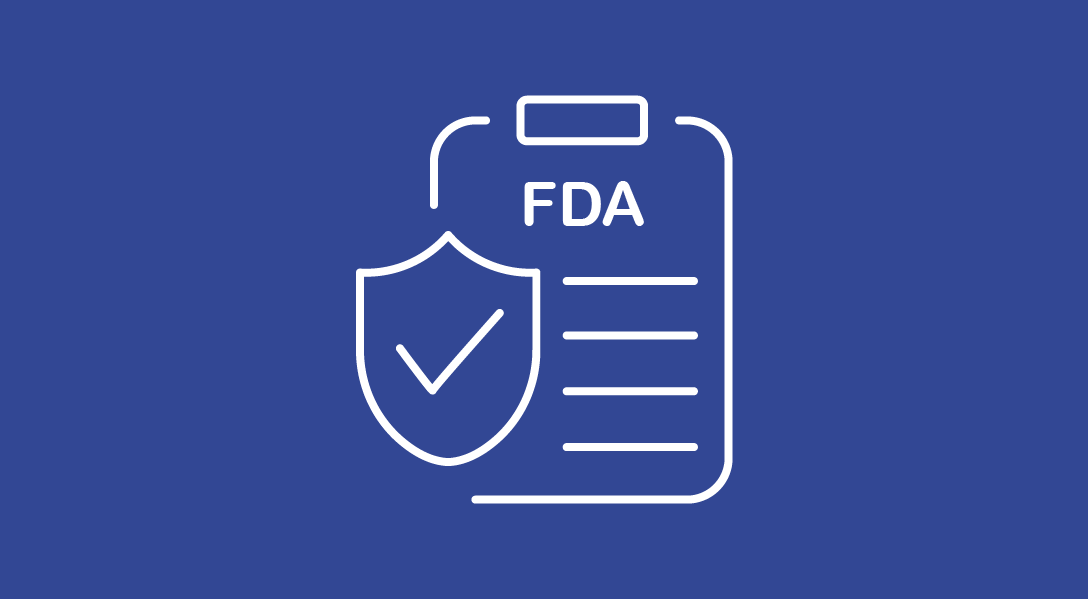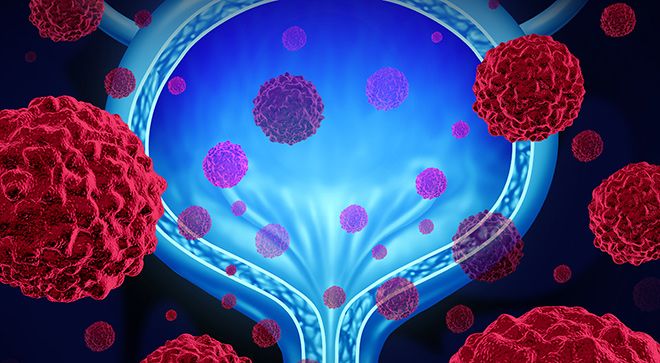
Bladder Cancer
Latest News
Video Series
Latest Videos
Podcasts
More News

Formerly known as TAR-200, gemcitabine intravesical system has received the FDA’s approval for use in patients with BCG-unresponsive NMIBC.

IMvigor011 showed significant improvement in survival outcomes with adjuvant atezolizumab in ctDNA-positive MIBC.

New data showed a 72.2% DOR rate in patients with recurrent low-grade, intermediate-risk non–muscle-invasive bladder cancer who had a CR at 3 months.

Based on durable response data, TAR-200 has been given priority review for the treatment of patients with high-risk non–muscle-invasive bladder cancer.

Oncologic therapies approved in June included indications in genitourinary, lung, hematologic, and head and neck cancers.

UGN-102 has received FDA approval for use in patients with low-grade intermediate-risk non-muscle-invasive bladder cancer.

Adding immunotherapy to chemo may boost pCR and downstaging rates in the neoadjuvant setting for muscle-invasive bladder cancer.

Durvalumab added to BCG induction and maintenance improved disease-free survival vs BCG alone in high-risk non–muscle-invasive bladder cancer.

Disitamab vedotin plus toripalimab improved PFS and OS over chemo in HER2+ metastatic urothelial cancer, per phase 3 RC48-C016 interim analysis.

Disitamab vedotin with toripalimab improved PFS and OS over chemo in HER2-expressing metastatic urothelial carcinoma, per phase 3 trial interim analysis.

Cretostimogene grenadenorepvec showed complete response across subgroups in patients with high-risk BCG-unresponsive non-muscle invasive bladder cancer.

Adding antihistamines to atezolizumab led to a 46% OS rate and a 23% PFS rate in metastatic urothelial carcinoma.

Enfortumab vedotin alone and in combination with pembrolizumab showed promise in patients with upper tract urothelial carcinoma, particularly those ineligible for standard chemotherapy.

Real-world data demonstrate significant outcome improvements with enfortumab vedotin in patients with unresectable or metastatic urothelial carcinoma.

Improved progression-free survival in metastatic urothelial carcinoma was observed in patients experiencing neuropathy, skin rash, and hyperglycemia following enfortumab vedotin.

Findings also suggested that an up-front dose reduction of enfortumab vedotin may benefit older patients with urothelial carcinoma.

Sasanlimab plus BCG improved outcomes in high-risk, BCG-naive non-muscle-invasive bladder cancer.

The antibody-drug conjugate showed a higher objective response rate but failed to meet the primary OS endpoint in patients with pretreated advanced urothelial carcinoma.

Nivolumab and hyaluronidase-nvhy (Opdivo Qvantig) was approved by the FDA for subcutaneous injection across approved solid tumor indications for nivolumab (Opdivo).

Heather Greene, MSN, FNP, AOCNP, shares insight into the use of erdafitinib in patients with locally advanced or metastatic urothelial carcinoma.

Extended lymphadenectomy did not improve DFS or OS, and led to a higher incidence of perioperative morbidity and mortality.

The duo of TAR-200 and cetrelimab was safe and efficacious in the neoadjuvant setting for certain patients with muscle-invasive bladder cancer.

Presurgical durvalumab plus chemotherapy, followed by adjuvant durvalumab, led to improved survival in patients with cisplatin-eligible muscle-invasive bladder cancer (MIBC).

Compared with chemotherapy, enfortumab vedotin plus pembrolizumab improved survival with no detriment to QOL in previously untreated metastatic urothelial cancer.

Olanzapine improved control of nausea and vomiting from moderately emetogenic chemotherapy, which may suggest its use as a standard of care for antiemetic prophylaxis.


























































































